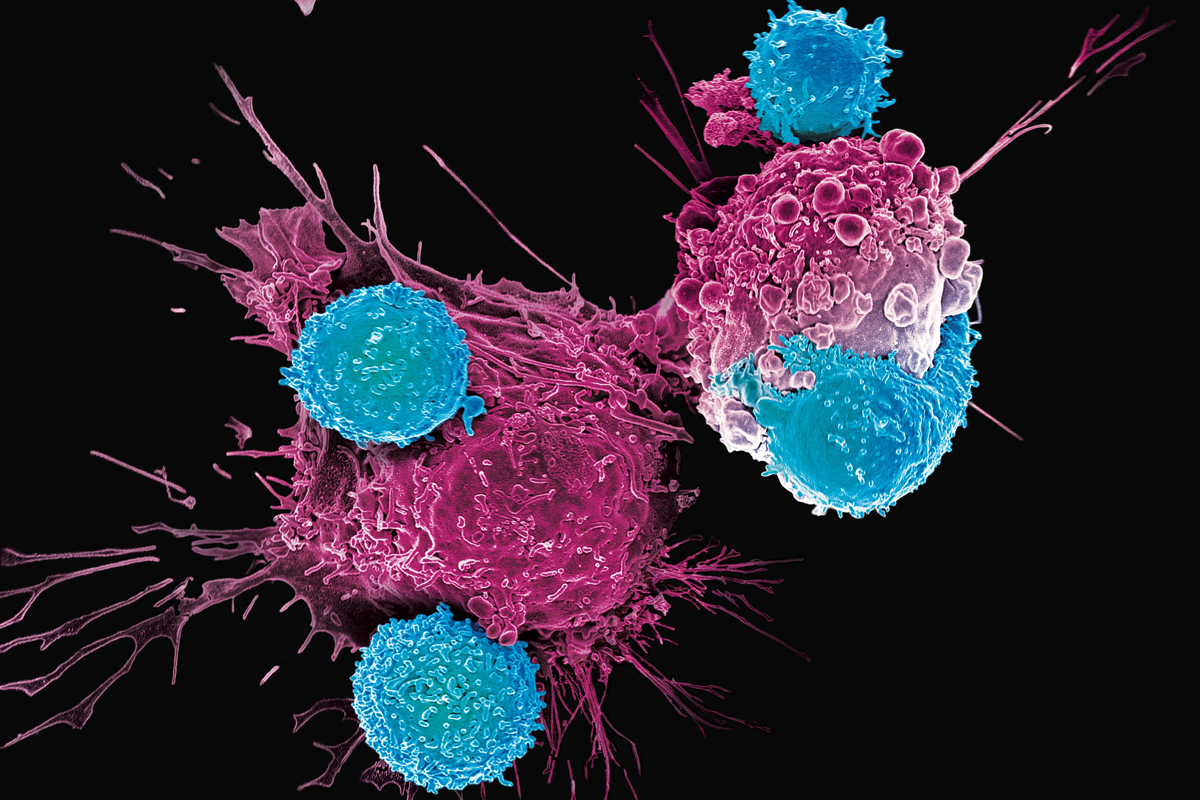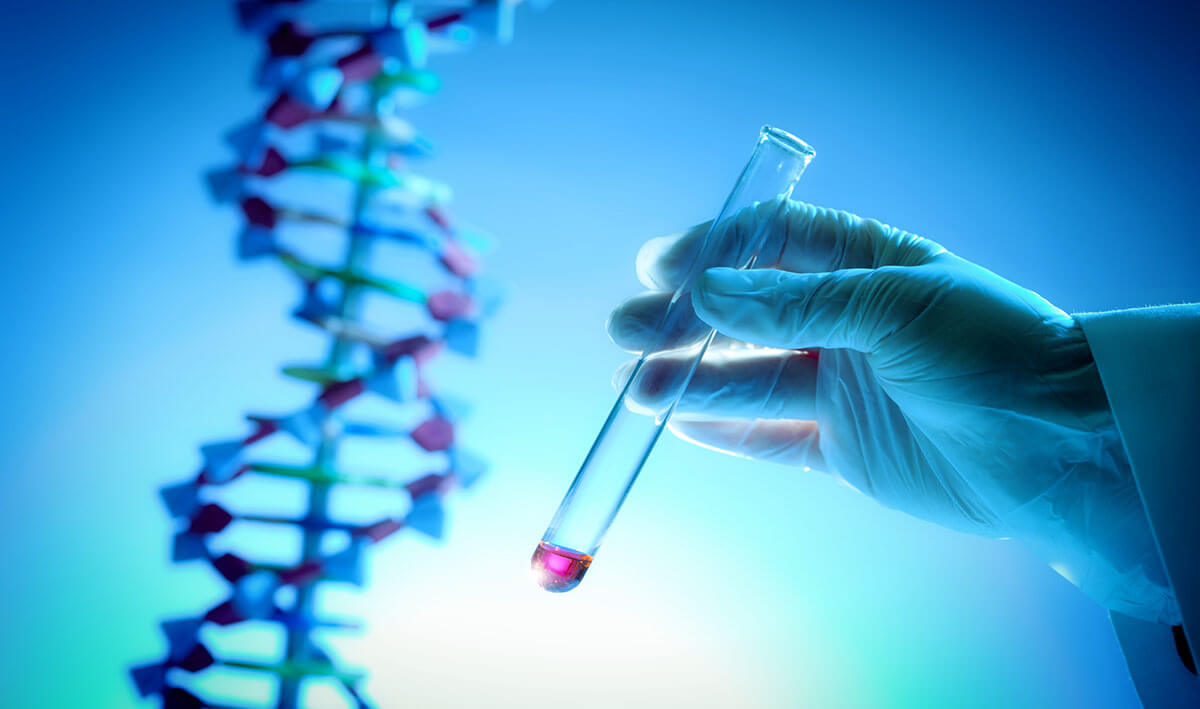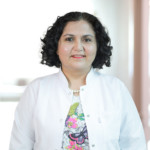-
 Medical articles
CAR T therapy: helps treat cancer when other methods fail
Medical articles
CAR T therapy: helps treat cancer when other methods fail
-
 Medical articles
Cancer incidence is steadily increasing: disappointing WHO forecast for 2050
Medical articles
Cancer incidence is steadily increasing: disappointing WHO forecast for 2050
-
 Medical articles
Stem cells bring hope to millions of people suffering from hearing loss
Medical articles
Stem cells bring hope to millions of people suffering from hearing loss
-
 Medical articles
TOP 10 clinics for oncology treatment 2023
Medical articles
TOP 10 clinics for oncology treatment 2023
-
 Medical articles
New methods for diagnosing cancer diseases
Medical articles
New methods for diagnosing cancer diseases
All news
Non-Hodgkin lymphoma treatment
Non-Hodgkin lymphoma (NHL) ranked 5-9th in terms of cancer prevalence in most countries of the world.
It can occur at any age and is one of the most common cancers in children, adolescents, and young adults. However, the risk of developing NHL increases throughout life, and more than half of patients are 65 or older.
The American Cancer Society estimates that 85% of NHL cases are B-cell lymphomas.
The 5-year survival rate for stage I non-Hodgkin lymphoma is 83.5%.
MedTour patients recommend clinics for the treatment of non-Hodgkin lymphoma:
Doctors for the treatment of non-hodgkin lymphoma
Frequently Asked Questions
Lymphoma is malignant neoplasms of the lymphatic system that forms when lymphatic tissue cells or lymphocytes uncontrollably proliferate. They produce cancer cells that have an abnormal ability to invade other tissues throughout the body.
The two main types of lymphoma are Hodgkin’s lymphoma and non-Hodgkin’s lymphoma (NHL).
Non-Hodgkin lymphoma is a term used to refer to many different types of lymphomas that share the same characteristics. NHL is classified into many subtypes. Depending on the cell of origin there are B-cell and T-cell lymphomas.
Doctors classify subtypes into categories that describe how quickly the disease progresses:
- Aggressive NHL,
- Slow growing NHL.
The subtype of non-Hodgkin’s lymphoma helps determine response to treatment, the type of treatment needed, and the prognosis.
Doctors and researchers don’t know the reasons that cause NHL. It happens when the body produces too many abnormal lymphocytes. These abnormal cells do not die but continue to grow and divide.
However, there are several diseases that are associated with an increased risk of developing the disease:
- Inherited immune deficiency,
- Genetic syndromes: Down’s syndrome, Klinefelter’s syndrome,
- Immune disorders: Sjogren’s syndrome, rheumatoid arthritis, systemic lupus erythematosus,
- Celiac disease,
- Crohn’s disease,
- Psoriasis,
- Bacteria: Helicobacter pylori which cause gastritis and stomach ulcers,
- Viruses: HIV, Epstein-Barr virus.
- Regular exposure to chemicals: insect and weed control agents used in agriculture and lumber handling,
- Effects of radiation,
- Immunosuppressive treatment,
- Previous exposure to chemotherapy or radiation therapy used to treat previously diagnosed cancer,
- High levels of nitrates in drinking water,
- Diets high in fat and meat products,
- Alcohol consumption.
Patients with NHL can experience a variety of symptoms. However, people with indolent subtypes usually are not bothered by the symptoms.
NHL symptoms depend on the site of cancer and the organ affected.
Common symptoms:
- Swollen lymph nodes in the abdomen, groin, neck, or underarms,
- Enlargement of the spleen or liver,
- Fever with a temperature above 38 ° C,
- Weight loss of more than 10% of the original body weight,
- Night sweats,
- Fatigue.
Symptoms associated with a specific location of the tumor:
- Swelling in the abdomen can cause an enlarged abdominal area, back or abdominal pain,
- Swelling in the groin can cause swelling of the legs,
- Swelling in the chest area can press on the trachea and cause coughing, chest pain, shortness of breath, and other respiratory problems.
How is non-Hodgkin lymphoma diagnosed and treated in the world`s leading clinics?
To determine if a patient has NHL, the doctor will first collect a complete medical history. After that, an experienced doctor performs a physical examination focusing on the lymph nodes, liver, and spleen.
As the lymphatic system runs throughout the body, any lymphatic organ can be affected by swelling.
The following imaging tests are used to help the doctor find the tumor and determine the stage of cancer:
- X-ray,
- CT scan,
- MRI,
- PET scan,
- Biopsy.
For most types of lymphomas, a biopsy is the only way for a doctor to know if there is cancer in a particular area of the body. In a biopsy, a doctor takes a small sample of tissue for examination in a laboratory.
Bone marrow aspiration and biopsy
Lymphoma often spreads to the bone marrow, so analysis of a bone marrow sample is quite important in diagnosing and staging lymphoma.
Tumor testing
The results of these tests help determine treatment options. There are several types of molecular genetic testing to identify specific genes, proteins, and other factors that are unique to NHL.
What treatment methods of non-Hodgkin lymphoma are used in the world’s leading clinics?
Treatment will depend on the age, type, and stage of NHL.
When treating lymphoma, different specializations doctors often work together to create an overall treatment plan for a patient that consists of different types of therapy and their combinations.
Types of therapy
Chemotherapy
World`s leading clinics offer patients various combinations and regimens of chemotherapy, including antibodies or radiolabeled antibodies. The drugs can be administered orally or by injection.
Radiation therapy
A radiation therapy regimen usually consists of a specified number of treatments performed over a specified period of time.
Targeted therapy
This treatment targets specific genes and proteins in the tumor, which promote cancer growth and survival.
In NHL, monoclonal antibodies are the main form of targeted therapy used in the treatment plan. Monoclonal antibodies recognize and attach to a specific protein and do not affect cells that lack that protein.
Immunotherapy
Immunotherapy is designed to enhance the body’s natural defenses to fight cancer. There are 2 approved CAR-T cell therapies for the treatment of lymphomas.
Patients often receive a combination of these treatments. Also the doctor and patient may consider surgery or a bone marrow/stem cell transplant.
What is the survival rate for patients with non-Hodgkin lymphoma?
Survival rates in the NHL vary. It usually depends on:
- Age,
- General health,
- Type of tumor,
- Type of tumor growth.
Patients with slow-growing cancer can live long lives. Aggressive NHL is treatable. But cancer found in later stages limits the options for possible therapy.
Published:
Updated:


Information on this webpage verified by the medical expert




